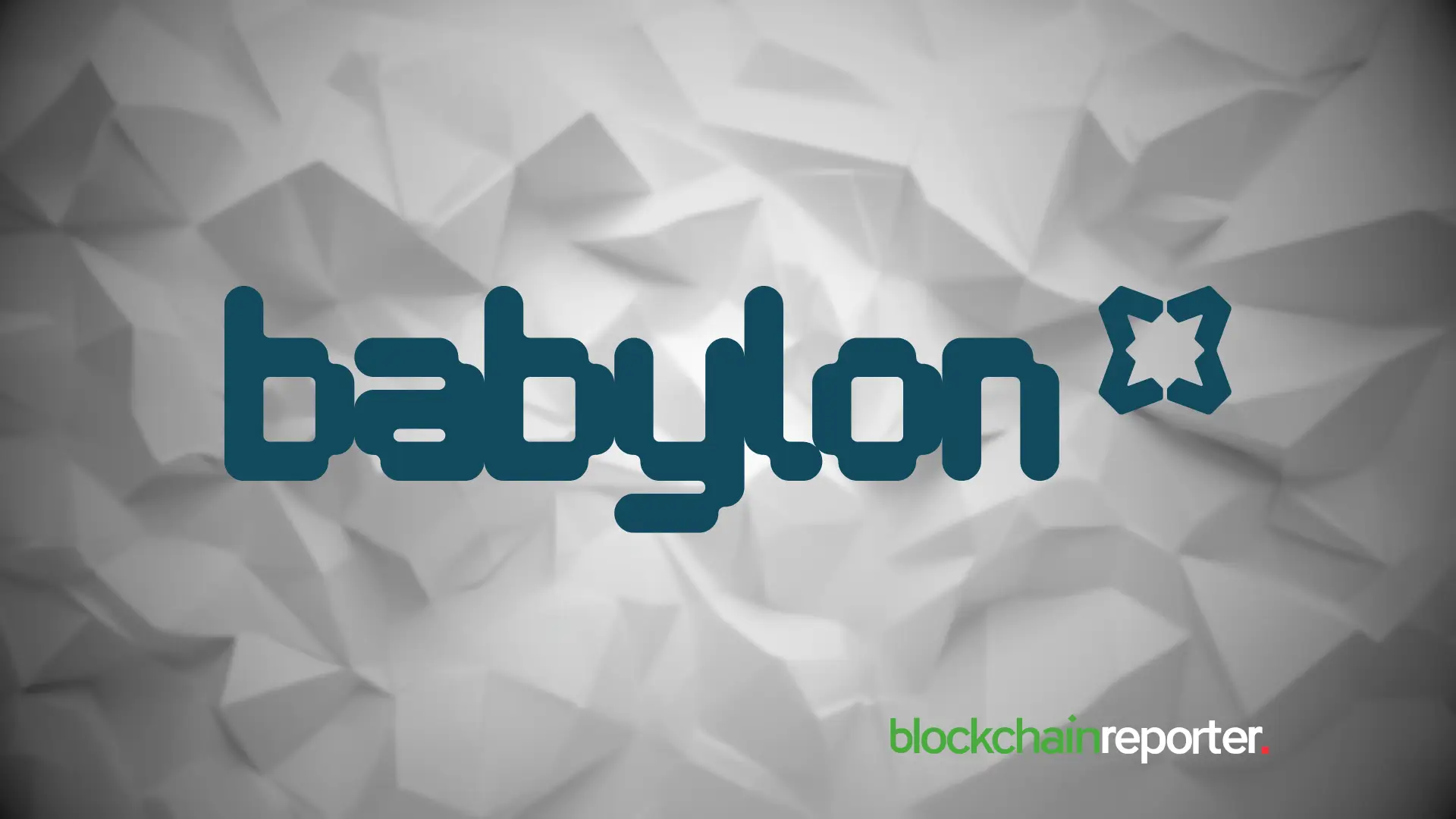
- 1. David Tse Shares Thoughts About Babylon Genesis and Bitcoin’s PoS Future
- 2. Interview Questions:
- 2.1. Q1. As a 1st-ever Bitcoin-secured L1 blockchain, what are the benefits of Babylon Genesis?
- 2.2. Q2. Can you explain Babylon Genesis’ distinction from the conventional Bitcoin L2s or wrapped $BTC solutions?
- 2.3. Q3. Based on the already amassed 57,000 $BTC coins in self-custodial staking operations, what key factors led to this swift adoption?
- 2.4. Q4. What is the mechanism of Babylon Genesis to ensure long-term sustainability and decentralization when it comes to staking?
- 2.5. Q5. In your opinion, how would Babylon Genesis impact the wider Bitcoin narrative as a vehicle for value storage?
- 2.6. Q6. What is Babylon Genesis’ plan to scale liquidity and security by leveraging Bitcoin for staking?
- 3. Closing Remarks
As the crypto industry is continuously evolving in terms of innovation, speed, and convenience, Babylon Genesis has emerged as a milestone L1 blockchain to revolutionize the Bitcoin ($BTC) ecosystem. Hence, Babylon Genesis, the subsidiary of Babylon Protocol, intends to transform Bitcoin ($BTC) from a passive value storage vehicle to a key player using a Proof-of-Stake (PoS) consensus mechanism with its remarkable liquidity and security.
Since the Babylon Genesis launched Phase 1 back in August last year, it has secured a massive amount of 57,000 $BTC via self-custodial staking activity. This boosts the platform’s staking market capitalization, placing it among the top 10 PoS platforms worldwide.
David Tse Shares Thoughts About Babylon Genesis and Bitcoin’s PoS Future
While the Genesis mainnet moves toward the launch thereof, prominent crypto exchanges and L1 ecosystems are getting ready for their integration with this groundbreaking project. The key names among them include the Cosmos-based Osmosis and others. Interestingly, the exclusive initiative to utilize the evolving narrative of Bitcoin makes Babylon Genesis a preferred choice in the ever-advancing DeFi sector.
Keeping in view the growing popularity of Babylon Genesis, this interview addresses David Tse, Co-Founder of Babylon Protocol, to delve into what new this landmark project provides to attract consumers.
Interview Questions:
Q1. As a 1st-ever Bitcoin-secured L1 blockchain, what are the benefits of Babylon Genesis?
Babylon Genesis is a multi-faceted blockchain:
A Bitcoin-secured Layer 1 which uses cutting-edge technologies such as Bitcoin staking and Bitcoin timestamping to leverage Bitcoin security;
A control plane that coordinates the other BSNs with Bitcoin so that they can efficiently receive Bitcoin security and liquidity with minimal integration efforts;
A liquidity hub that manages Bitcoin liquidity through on-chain applications that are secured by Babylon Genesis
Q2. Can you explain Babylon Genesis’ distinction from the conventional Bitcoin L2s or wrapped $BTC solutions?
No bridging or wrapping required: Babylon enables native Bitcoin staking directly from the Bitcoin base layer without needing wrapped tokens or external bridges. BTC never leaves the Bitcoin chain.
Trustless design: Leverages Bitcoin’s native features (time-locks and signatures) for self-custodial staking. Users retain full ownership and custody of their BTC at all times.
Bitcoin as security, not settlement: Unlike L2s that process Bitcoin transactions, Babylon uses Bitcoin to secure Genesis and other chains
Dual-quorum finality: Security is achieved via a PoS consensus (CometBFT) coupled with Bitcoin-staked Finality Providers, introducing Bitcoin-based finality without compromising decentralization.
Q3. Based on the already amassed 57,000 $BTC coins in self-custodial staking operations, what key factors led to this swift adoption?
Self-custody: Stakers don’t lose control of their BTC.
Broad appeal: The protocol aligns with Bitcoin’s ethos and unlocks new utility while preserving security.
No bridging risks: This model is native, secure, and Bitcoin-aligned.
Q4. What is the mechanism of Babylon Genesis to ensure long-term sustainability and decentralization when it comes to staking?
Babylon uses a dual-token PoS system:
BTC provides economic security via time-locked stakes.
BABY token governs the chain and earns staking rewards.
Q5. In your opinion, how would Babylon Genesis impact the wider Bitcoin narrative as a vehicle for value storage?
By leveraging advanced cryptography and Bitcoin’s scripting language, Babylon Protocol turns Bitcoin into a genuine staking asset without relying on any intermediaries. This represents the third native use case of Bitcoin ($BTC) beyond store and transfer of value.
Q6. What is Babylon Genesis’ plan to scale liquidity and security by leveraging Bitcoin for staking?
On the security front, Genesis serves as the coordination layer for all BSNs, routing Bitcoin staking and timestamping data across chains. This allows BSNs to inherit Bitcoin’s security without duplicating infrastructure. By syncing with Genesis for finality signatures, data availability, and timestamping, Genesis becomes the central trust anchor—scaling Bitcoin security to more chains while concentrating rewards on Genesis for its stakers and validators.
On the liquidity side, Genesis is building a trust-minimized Bitcoin bridge that brings BTC into the ecosystem without relying on multisigs or custodians. This enables the creation of native, trustless Liquid Staking Tokens (LSTs) aligned with the underlying Bitcoin staking protocol—anchoring both security and liquidity in Bitcoin and coordinating them through Genesis.
Closing Remarks
In an exclusive interview, David Tse highlighted the functionality of the Babylon Genesis. Babylon Genesis is the subsidiary of Babylon Protocol, redefining that how Bitcoin ($BTC) can be employed as a store of value for unlocking new layers of utility through trustless, self-custodial staking. This innovation is playing a crucial role in elevating Bitcoin’s role in the PoS space. In a nutshell, Babylon is basically setting the stage for a secure, decentralized, and liquid future in decentralized finance (DeFi).









